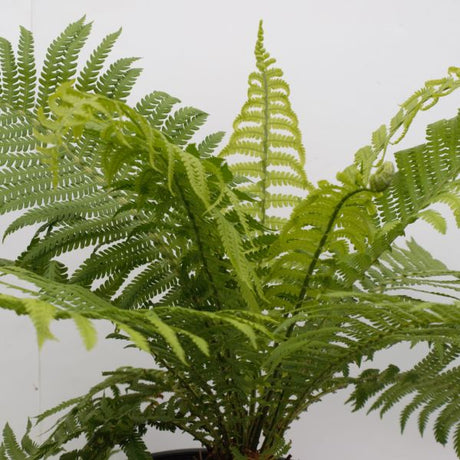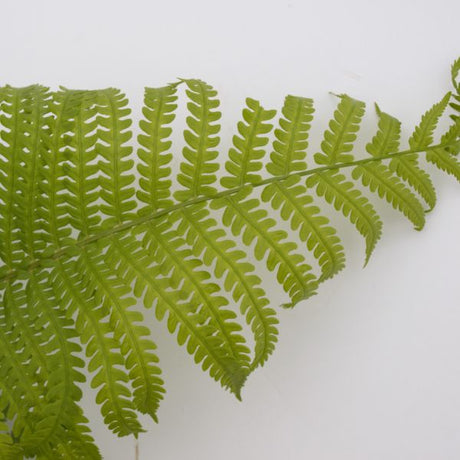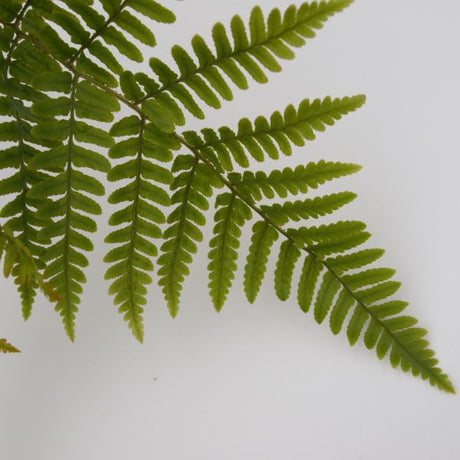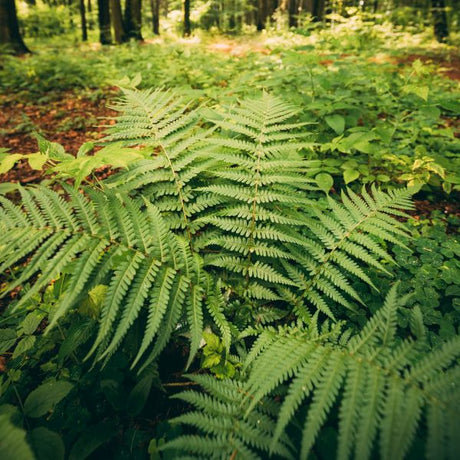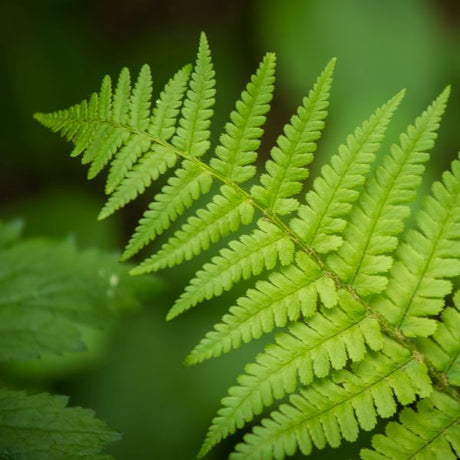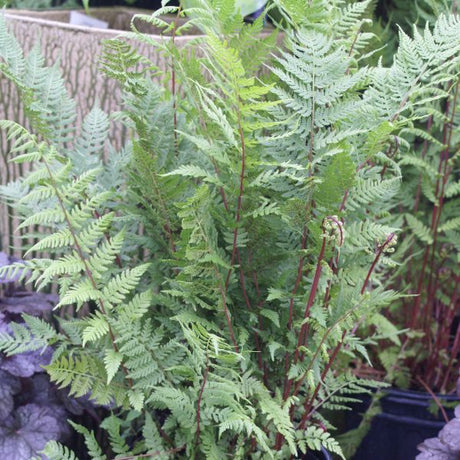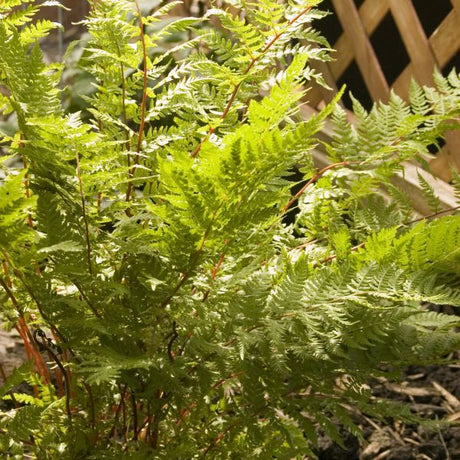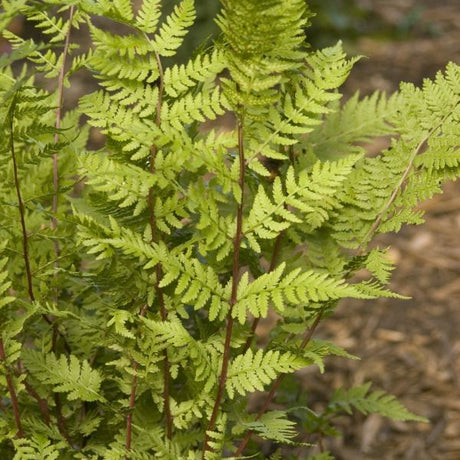-
-
Athyrium niponicum 'Pictum'
PreorderRegular price From $1699Unit price /Unavailable -
Athyrium niponicum var. pictum 'Burgundy Lace'
PreorderRegular price From $1699Unit price /Unavailable -
Dryopteris erythrosora 'Brilliance'
PreorderRegular price From $1699Unit price /Unavailable -
-
-
Adiantum aleuticum 'Five Finger'
PreorderRegular price $3429Unit price /Unavailable -
Godzilla Japanese Painted Fern
Athyrium 'Godzilla'
PreorderRegular price From $1699Unit price /Unavailable -
Athyrium felix-forma 'Lady in Red'
PreorderRegular price $3435Unit price /Unavailable -
-
-
-
Athyrium filix-femina 'Dre's Dagger'
PreorderRegular price $3439Unit price /Unavailable -
-
Dryopteris filix-mas undulata 'Robusta'
PreorderRegular price $3426Unit price /Unavailable -
FAQ's for Buying Ferns Online
What are the best ferns to grow in shady gardens?
What are the best ferns to grow in shady gardens?
Ferns thrive in shade to dappled sun, making them perfect for woodland gardens, understory plantings, and cool, moist spots in the landscape. Popular shade-loving varieties include the Ostrich Fern, Western Sword Fern, Japanese Painted Fern, and Lady Fern. These varieties are ideal for filling dark corners with lush, textured greenery.
Can ferns grow in containers or as houseplants?
Can ferns grow in containers or as houseplants?
Yes! Many compact ferns like Maidenhair Ferns or Boston Ferns do beautifully in containers or as indoor houseplants. Use them as thrillers or spillers in pots, or place them indoors in bright, indirect light. With consistent moisture and humidity, container-grown ferns add soothing texture and natural air purification to your home.
Do ferns come back every year?
Do ferns come back every year?
Most hardy ferns are perennials and return each spring in USDA Zones 3 through 9. In colder climates, they die back in winter and regrow from their root crowns. With proper care, these long-lived plants form clumps or spreading colonies, offering year-after-year beauty in shady borders, mass plantings, or native gardens.
How do I care for ferns in the landscape?
How do I care for ferns in the landscape?
Ferns prefer rich, well-drained soil with high organic content. Plant them in shady or partially shaded areas, water consistently to maintain even moisture, and mulch generously to protect the roots. Ferns are generally low-maintenance, deer-resistant, and disease-free. Prune dead fronds and divide clumps every few years to keep them vigorous.
Are there colorful fern varieties for ornamental appeal?
Are there colorful fern varieties for ornamental appeal?
Yes! While many ferns are known for their classic green fronds, some varieties bring bold foliage color to your garden. Look for Japanese Painted Ferns like 'Burgundy Lace' or Jurassic Gold Ferns for silvery, purple, or golden hues that stand out in shaded beds and containers. These showy ferns add unique flair beyond traditional greenery.








